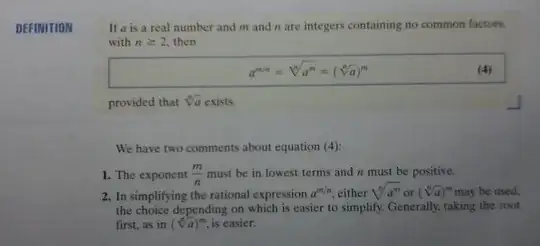I understand that $\sqrt{x^2} = |x|$ because the principal square root is positive.
But since $\sqrt x = x^{\frac{1}{2}}$ shouldn't $\sqrt{x^2} = (x^2)^{\frac{1}{2}} = x^{\frac{2}{2}} = x$ because of the exponents multiplying together?
Also, doesn't $(\sqrt{x})^2$ preserve the sign of $x$? But shouldn't $(\sqrt{x})^2 = (\sqrt{x})(\sqrt{x}) = \sqrt{x^2}$?
How do I reconcile all this? What rules am I not aware of?
Edit: Since someone voted to close my question, I should probably explain the difference between my question and Proving square root of a square is the same as absolute value, regardless of how much I think the difference should be obvious to anyone who reads the questions. Cole Johnson was asking if there's any way to prove that $\sqrt{x^2} = |x|$. I am not asking that; I already accept the equation as fact. I'm asking how to resolve some apparent contradictions that arise when considering square roots of squares, and how I should approach these types of problems. (Cameron, please read.)


